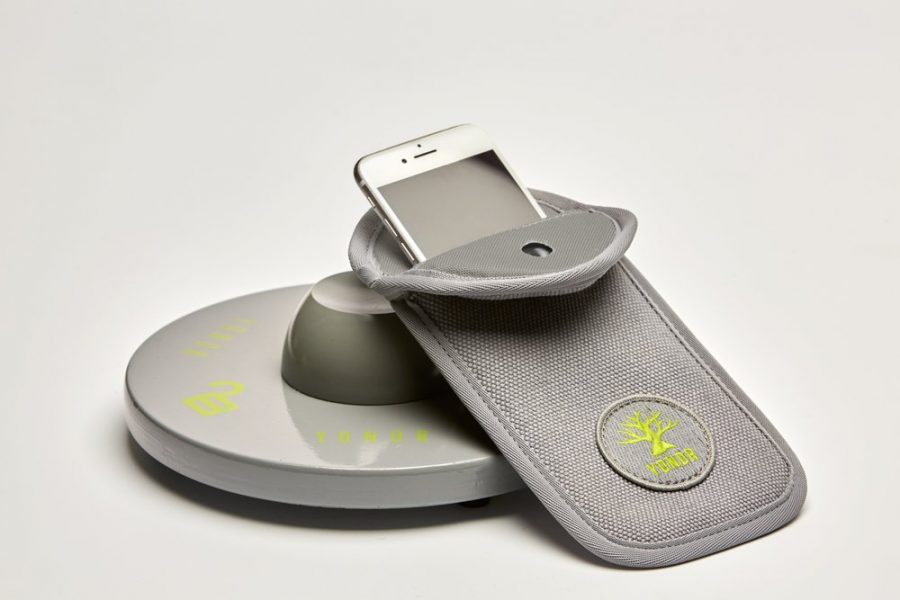Asking politely, it seems, is no longer enough. At least not when it comes to silencing cell phones during performances.
This is where the Yondr phone case comes in. In 2014, Graham Dugoni created the Yondr case, a lockable sleeve designed to keep iPhone users off of their devices, if only for a few hours. Numerous cases are sold to venues and organizations along with small metal discs which act as unlocking devices. Audience members place their phone in the provided case at the beginning of the show. Throughout, they keep their phone on their person. At the end, they tap the Yondr case to an unlocking device outside and the pouch snaps off like a retail sensor.
Over the last few years, the case has been used at performances, school playgrounds and courtrooms.
Tisch senior Austin Phares said he recently used the Yondr case at a John Mulaney and Pete Davidson stand-up show. Under the impression that everyone’s phones were going to be thrown into some kind of collection bin, he was initially uncomfortable with the idea. He was pleased to find that audience members were actually allowed to keep their phones on them.
Phares said he expects more comedians who, like Davidson, touch on sensitive topics in their comedy, to begin implementing the cases at their shows. He noted that they were used at a recent Aziz Ansari show at BAM as well.
“They don’t want any of their set being recorded out of context,” he said. “It’s also probably good for artists who want to keep control of the material that will eventually show up on a streaming platform.”
Tisch senior Nate Fellner also supports the use of the cases, commenting that there is no need for anyone to have access to their phone during a performance.
Though photos or videos taken during a performance are often shared on social media and ultimately function as free press for the show, Fellner does not believe that taking phones away will negatively affect a show’s promotion.
“If people are really into a show or a performance or something they can always post about it afterwards,” Fellner said. “An audience member has a right to see that show but they don’t have a right to distribute that show, necessarily, to tons of people on the internet.”
While he admitted the issue is complicated and may depend on the event, he feels it’s crucial to unplug for any kind of performance.
“Otherwise you’re splitting your energies between two different spaces: one that’s physical and super present and one that’s entirely virtual,” he said.
Tisch junior Aileen Wu was more skeptical of the device, emphasizing the responsibility of the performer to keep the audience’s attention and deal with unexpected disruptions. “I personally think there’s no point in controlling the audience in any shape or form,” she said.
This September, Wu acted in “Lear’s Shadow,” an Off-Broadway production adapted from Shakespeare’s “King Lear.”
“I learned very quickly not to get offended when people fall asleep in the audience while I’m on stage doing a play,” she said. “It actually doesn’t say anything about how good the piece is, or even if that person is rude. The only thing I can draw from that is that they needed to sleep.”
She continued to say that, just as she cannot prevent someone from sleeping who needs to sleep, she cannot prevent someone who needs to use their phone from doing so during a performance.
“All I can try to do is prompt a conversation that’s engaging enough that they won’t want to look away even for a second to miss something,” she said. If a phone goes off during a performance, she believes it is her duty to maintain enough professionalism and skill in her craft to carry on unperturbed.
Tisch junior Mia Corbett called the pouch a necessary evil in this day and age. For her, it is somewhat of an infringement on personal freedom, but one that cannot be avoided.
“I think that audiences don’t know how to behave without their phones,” she said, “and these pouches could force them to learn.”
Email Julie Goldberg at [email protected].


























































































































































